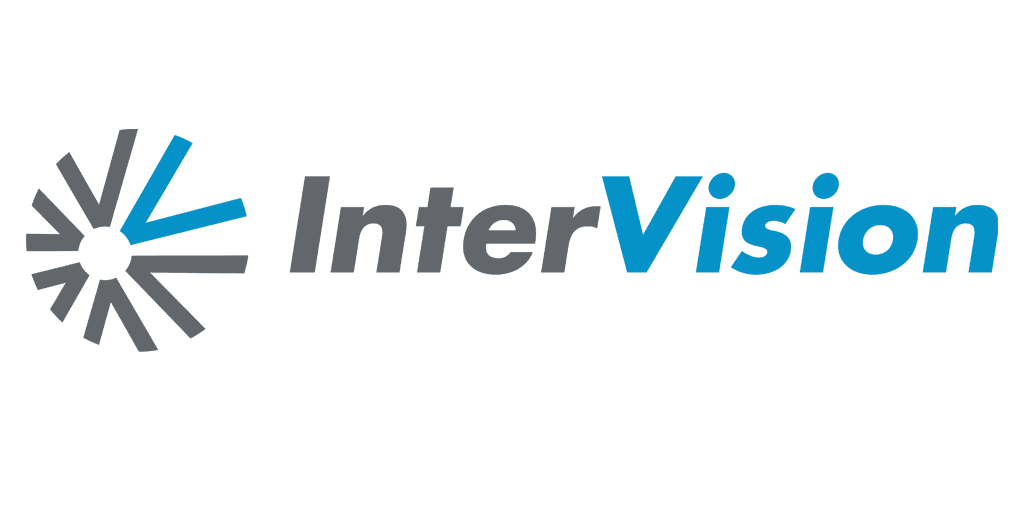The global UCaaS market is expected to increase at a compound annual growth rate of 23.6% between 2021 and 2028, according to Grand View Research. That projected growth likely won’t come as a surprise, given the unique needs and challenges the world has faced shifting to remote work and hybrid work since early 2020. The truth is, whatever your company’s “new normal” is, the need for flexibility and scalability are probably on the list—and that’s where UCaaS shines.
However, adopting, integrating, and launching an entirely new communications solution is a time-consuming project, so it’s important to get it right the first time. What’s more, selecting a UCaaS provider is a big purchase for companies, and there are many things that must be considered when migrating to a new platform. So what are these considerations, and how can you find the right UCaaS provider for your company? This article will explore what to look for in a UCaaS platform, how to find top UCaaS providers, and how managed services companies can help make the whole process smoother.
What Does UCaaS Stand For?
To get started, UCaaS stands for Unified Communications as a Service. It refers to a category of products that offer a suite of communications tools—including phone calls, webchat, video conference, and more—as a service. Almost exclusively, UCaaS products are cloud-based, which means the data is stored on the internet and available on myriad different devices to provide better flexibility to employees.
Unified communications technologies or platforms are an excellent option for companies of all sizes, from small- and mid-sized businesses all the way up to enterprise companies. One of the largest benefits of a UCaaS platform, in fact, is the scalability to grow or reduce your needs. While UCaaS is applicable in almost every industry, some of the most common industries that use these systems include financial, legal, healthcare, manufacturing, media and entertainment, education, and government.
There are a couple of other terms that are used in the world of UCaaS that are important to understand. Let’s explore them before jumping into more about UCaaS providers and how to find the right solution for your company.
VoIP vs. UCaaS
Are you wondering,”What is the difference between VoIP and UCaaS?” You’re not alone. It’s easiest to think of VoIP, or Voice Over Internet Protocol, as a precursor to UCaaS. VoIP was an advancement from private branch exchange systems, and it was driven, in part, from a need for flexibility. With the creation of VoIP, agents were no longer tied to their desk phones and could instead take calls via their desktop, laptop, or smartphone.
In today’s UCaaS system, VoIP is a regular part of service packages that are designed to provide companies with an end-to-end unified communications system.
UCaaS vs. CCaaS vs. CPaaS
The difference between “as-a-service” terms is sometimes subtle. Here are a few you’ll come across in the UCaaS space.
- CCaaS: CCaaS stands for Contact Center as a Service. CCaaS platforms enable businesses to operate their contact center. CCaaS platforms are often cloud-based customer experience (CX) solutions, though on-premise CCaaS does exist. A vendor often operates CCaaS platforms on a managed service model to reduce the need for ongoing IT and support internally.
For example, managed service providers like InterVision are third-party firms that remotely manage defined responsibilities for a company. Typically, managed service provides work in the information technology field, providing overburdened IT teams with the assistance they need to increase efficiencies, maintain software solutions, reduce technical debt, and provide a competitive edge.
- CPaaS: CPaaS stands for Communication Platform as a Service. It’s used to describe cloud-based solutions that allow companies to add communication features to their existing software solutions. If you think that sounds similar to UCaaS, it’s because it does. The difference lies in the delivery model. With CPaaS, developers can add communication tools to existing software solutions. With UCaaS, the communication features are built into a one-stop-shop solution.
Who are UCaaS Providers?
UCaaS providers, sometimes referred to as UCaaS vendors, are the companies that build and manage a unified communications platform or a set of tools that are packaged as an end-to-end internal communications suite. Top UCaaS providers include 8×8, Microsoft Teams, and Cisco.
- 8×8: 8×8 is a UCaaS provider and their platform includes communication tools like instant messaging, softphone, video calling, web meetings, call recording capabilities, and visual voicemail. 8×8’s cloud-based platform is also compliant with GDPR and HIPAA standards and offers a host of integration possibilities.
- Microsoft: Microsoft developed Microsoft Teams to enter the UCaaS space. The cloud-based platform provides video conferencing, team collaboration capabilities, group chats, and more. Additionally, for users of Microsoft’s suite of products, it offers seamless integrations with products like OneDrive and SharePoint.
- Cisco: Cisco is a UCaas provider that offers a cloud-based unified communications platform that supports IP telephony, video conferencing, web calls, and messaging. Cisco Unified Communications Manager offers myriad integrations, and its core package includes products like Cisco Jabber and Cisco Webex.
What is Included in UCaaS?
Every UCaaS provider will offer a different suite of tools—sometimes via an ala carte model where you can choose the services you need—but there are some capabilities you should expect to get with any UCaaS platform.
Historically, questions like “What are the 3 main components of unified communications?” were asked. This question simply referred to three of the main functions UCaaS provides: email, messaging, and conferencing. While these functions are still an essential aspect to any good UCaaS solution, today UCaaS has integrated additional cutting-edge solutions.
Industry-leading research company Gartner identified six main components of unified communications that should be included in any UCaaS system.
- Enterprise telephony: A telephoning system for businesses that includes basic features like call hold, call transfer, call forwarding, and three-way calls.
- Meetings (audio/video/web conferencing): Collaborative tools that allow for instant messaging, screen sharing, recording, and calendar integrations.
- Unified messaging: Bringing the various communication channels, including email, text, and voicemail, into a single system and interface for ease of use.
- Instant messaging and presence (personal and team): The ability for teams to communicate in real-time and to see each other’s availability and status.
- Mobility: The ability to access the UCaaS platform via a mobile device and have a user experience that is equally as good as the desktop version.
- Communications-enabled business processes: Integrating automated communications into business processes via the use of application programming interface (API) or software development toolkit (SDK).
Narrowing your Options for UCaaS Providers
When it comes to selecting a UCaaS provider, it’s important to choose the right one for your company. The right UCaaS solution can provide cost savings, increased efficiencies, and flexibility for your workforce now and into the future. Here are some features to look for when searching for the best UCaaS providers for your needs.
Reliability
UCaaS platforms are essential to the day-to-day operations of the companies that adopt them because they support the communications efforts employees need to successfully do their jobs. Top UCaaS providers will have a proven record for delivering a reliable platform. Sophisticated, accessible support and regular software updates at expected times that don’t interrupt business operations are two aspects of reliability to look for.
Integration Capability
A UCaaS solution is most effective when it’s able to be fully integrated into your existing suite of services and overall business strategy. That’s why it’s important to find a platform that integrates well with any third-party apps you currently use or are interested in adopting. Seamless integration is essential to minimizing inefficiencies and improving workflows for individual employees and teams alike. For example, if you’re currently running a CCaaS platform, ensuring that your UCaaS platform integrates with it will be important for your call center employees’ productivity.
High Availability
High availability is a critical component for internet protocol (IP) communications. With high availability, companies will have the ability to communicate with anyone, anywhere, and at any time. To achieve this, users must be able to place and receive calls during peak times, during planned maintenance, and even during unexpected failures. UCaaS providers with geographically redundant architecture—which ensures that systems can handle call volumes even during network outages.
Security
With the rise in cyberattacks in the US and other countries, security is arguably more important than ever. So keeping your internal communications secure is a mission critical component to many companies. Find out if the UCaaS providers you’re looking at offer features like end-to-end encryption or support a Zero Trust security model. It’s also a good idea to look for UCaaS providers that offer flexibility with enterprise key management.
Features
UCaaS providers have become increasingly innovative with their offerings over the past several years, so you’ll have many options to find the right provider with the right tools. While some still offer basic solutions, others have additional as-a-service options like CCaaS or CPaaS API integrations. Identify the tools and features that are important to your company and find a provider who can support your needs.
Pricing Structure
Of course, most companies are interested in the pricing structure of UCaaS systems. Most UCaaS systems will charge some upfront costs associated with implementation and deployment. While most UCaaS providers charge by the seat—or the number of users—others operate on a pay per usage model that looks at the overall usage in a given time period.
User Experience
Usability is an essential component of any platform or service you adopt. Your company simply shouldn’t implement any product that doesn’t meet the needs of your employees or customers. Adopting a UCaaS solution should be about reducing redundancies, simplifying communication, and providing your employees with an easy-to-use system. Look for a UCaaS provider that designs its products and tools with the end-user in mind and UX at the front of mind.
Customer Service
Things happen, even with the best UCaaS providers, and sometimes a knowledge base just won’t cut it. So it’s important to find a provider that offers stellar customer service. The best UCaaS providers offer dedicated, on-demand support to help troubleshoot any issues you may be experiencing.
Partners with a Managed Services Company
For companies of all sizes, managing the day-to-day IT needs of a UCaaS system may not be feasible. Already busy IT staffers may not be able to handle the additional role, and hiring additional team members may simply not be the right option. Managed Services companies like InterVison are experts in UCaaS solutions and even partner with leading providers to offer your company with the UCaaS solution you need… without all the challenges that come with integration and upkeep.
Once you have a short list of options you’re interested in, it may be helpful to create a UCaaS provider comparison chart. Highlight the features and options that are most important to your company and rank your options to help narrow down your choices.
InterVision: Managed Services for your UCaaS Needs
Still wondering “What is the best unified communication company?” The short answer is, it’s whichever provider offers the platform and services that best fit your business’s unique needs.
As a managed services company that partners with leading UCaaS providers, InterVision can help you find the right solution for your needs. Our team understands that every company operates differently, and our due diligence and refined process means finding the right UCaaS provider will be tailored to your unique challenges, risks, and objectives.
The InterVision process begins by working closely with your team and any stakeholders to understand your needs and goals, before moving into design, implementation, and management. Finally, our process champions ongoing optimization and evolution because transformation is a process, not a project.
Interested in learning more about our tailored approach to UCaaS managed services? Reach out to us today.
Want to learn more? You may also be interested in these blogs …
UCaaS: Past, Present and Future
UCaaS Examples
CCaaS Companies
Knowledge is power
Our experts have compiled research and recommendations to help you better understand threats, protection, and solutions.












